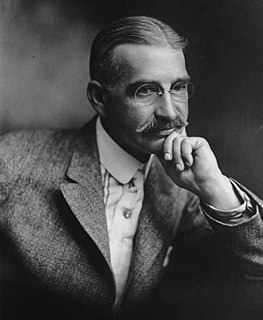A Quote by Horace
He will often have to scratch his head, and bite his nails to the quick. [To succeed he will have to puzzle his brains and work hard.]
Related Quotes
Too often in the past, we have thought of the artist as an idler and dilettante and of the lover of arts as somehow sissy and effete. We have done both an injustice. The life of the artist is, in relation to his work, stern and lonely. He has labored hard, often amid deprivation, to perfect his skill. He has turned aside from quick success in order to strip his vision of everything secondary or cheapening. His working life is marked by intense application and intense discipline.
Where it is in his own interest, every organism may reasonably be expected to aid his fellows. Where he has no alternative, he submits to the yoke of communal servitude. Yet given a full chance to act in his own interest, nothing but expediency will restrain him from brutalizing, from maiming, from murdering his brother, his mate, his parent, or his child. Scratch an 'altruist' and watch a 'hypocrite' bleed.
I learned that it is better, a thousandfold , for a proud man to fall and be humbled, than to hold up his head in his pride and fancied innocence. I learned that he that will be a hero, will barely be a man; that he that will be nothing but a doer of his work, is sure of his manhood. In nothing was my ideal lowered, or dimmed, or grown less precious; I only saw it too plainly, to set myself for a moment beside it.
Much has been said about Robert, and more will be added. Young men will adopt his gait. Young girls will wear white dresses and mourn his curls. He will be condemned and adored. His excesses damned or romanticized. In the end, truth will be found in his work, the corporeal body of the artist. It will not fall away. Man cannot judge it. For art sings of God, and ultimately belongs to him.
By a man's finger-nails, by his coat-sleeve, by his boots, by his trouser-knees, by the callosities of his forefinger and thumb, by his expression, by his shirt-cuff — By each of these things a man's calling is plainly revealed. That all united should fail to enlighten the competent inquirer in any case is almost inconceivable. You know that a conjurer gets no credit when once he has explained his trick; and if I show you too much of my method of working, you will come to the conclusion that I am a very ordinary individual after all.
No man, however enslaved to his appetites, or hurried by his passions, can, while he preserves his intellects unimpaired, please himself with promoting the corruption of others. He whose merit has enlarged his influence would surely wish to exert it for the benefit of mankind. Yet such will be the effect of his reputation, while he suffers himself to indulge in any favourite fault, that they who have no hope to reach his excellence will catch at his failings, and his virtues will be cited to justify the copiers of his vices.
Who shall blame him? Who will not secretly rejoice when the hero puts his armour off, and halts by the window and gazes at his wife and son, who, very distant at first, gradually come closer and closer, till lips and book and head are clearly before him, though still lovely and unfamiliar from the intensity of his isolation and the waste of ages and the perishing of the stars, and finally putting his pipe in his pocket and bending his magnificent head before her—who will blame him if he does homage to the beauty of the world?







































